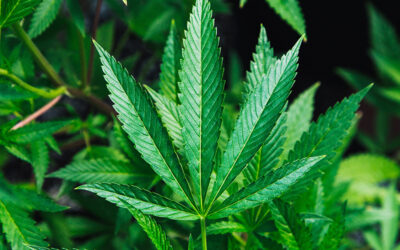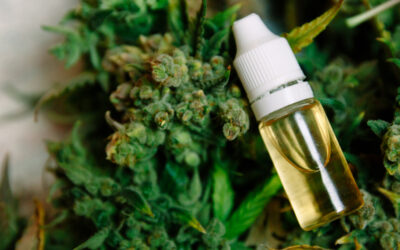CBD Could Become Internationally Legal After Upcoming World Health Organization Expert Committee Meeting
Cannabidiol, or CBD, could take one step further towards global acceptance in November when World Health Organization officials review its place among internationally regulated substances. A special committee will evaluate its psychoactivity and subsequent potential for abuse, and if CBD’s regulated status is lifted, it could increase access to CBD in UN Member States around the world and create the opportunity to positively impact the health of people everywhere.
Edging Closer to CBD Reform
Public perception of cannabis and, in particular, CBD has been shifting in recent years and is undoubtedly picking up steam. This can be seen in the relaxing of cannabis policy for both medical and recreational use, the increasing availability of CBD products around the world, and most recently, in this move by the WHO toward perhaps relaxing CBD regulations.
On November 6th, the WHO’s Thirty-Ninth meeting of the Expert Committee on Drug Dependence will begin a 5-day agenda set to determine the potential for harm or dependence of 16 different substances, including CBD. During the first day, November 6th, there will be an open session for parties with a special interest in the 16 substances under review to present information to the committee. HempMeds® representative Raul Elizalde will be speaking during this open session on CBD’s benefits and lack of psychoactivity.
The recommendations made during this meeting can affect CBD’s international legality for all UN Member States, giving consumers around the world access to a unique way to improve their overall wellness.
What is CBD?
CBD is just one of over 100 cannabinoids found in the cannabis plant. These compounds are responsible for the cannabis plant’s many effects, including its health benefits. CBD is widely available in some markets and highly regulated in others.
CBD is produced in 2 ways:
- Naturally, in the cannabis plant. Cannabidiol can be found in both hemp and marijuana varieties of cannabis.
- Cannabidiol can also be produced synthetically in a laboratory. However, synthetically produced cannabidiol is a regulated substance, and possession of it is legal only for research or by prescription.
Learn more about CBD and its benefits HERE.
Is CBD Psychoactive?
Marijuana, a member of the cannabis family, is specifically bred to contain the compound tetrahydrocannabinol (THC), the chemical in marijuana that creates its euphoric effects.
On the other hand, CBD, found in high quantities in hemp, does not get users high.
This difference is based on the ways in which each cannabinoid interacts with the human body’s endocannabinoid system (ECS). Responsible for maintaining balance in the body, the ECS has two cannabinoid receptors: CB1 and CB2.
The CB1 receptor is located in the central nervous system and brain while the CB2 receptor can be found throughout the peripheral nervous system. THC specifically fits with the CB1 receptor to generate its psychoactive effects. CBD, on the other hand, interacts indirectly with endocannabinoid receptors and, therefore, is not psychotropic.
CBD is widely considered to be safe, non-psychoactive, and non-toxic for humans, even at high amounts. A research paper titled Safety and side effects of cannabidiol explored this subject, suggesting that controlled CBD administration is safe for use by humans and animals.
How is CBD Used?
With the growth in demand for medical marijuana for health reasons, and the legalization movement lagging behind, millions of people are looking for alternative sources of CBD. Because CBD is also a natural ingredient found in hemp, which is legal in over 40 countries, the popularity of CBD hemp oil products and topicals has skyrocketed.
CBD hemp oil products have already been available on the mainstream market for years now, including wellness products like:
- Daily capsules
- Tinctures
- Liquids
- Vaporizers
- High concentration extracts
These products are used to support the body’s naturally occurring endocannabinoid system, increasing its ability to maintain homeostasis (balance), despite fluctuations.
What CBD Rescheduling Could Mean for You
When we talk about rescheduling CBD, the most immediate result for most consumers could be increased availability. Any loosening in international policy regarding CBD has the potential to open new markets around the world to the benefits of CBD. The acceptance of CBD by a WHO committee would influence health officials and lawmakers worldwide, possibly leading to changes in national laws covering CBD sale, possession, and use.
A change in CBD’s regulated status internationally could also make it easier to travel with CBD products from country to country, ensuring that those who depend on CBD don’t have to go without when traveling abroad. No one should have to face arrest for drug trafficking for taking their CBD products over state lines or international borders. Changes in CBD’s scheduling could also lead to an easier process for moving CBD products through customs when shipped internationally.
Finally, acceptance of CBD by the WHO Expert Committee on Drug Dependence may also lead to increased research into the effects of CBD on the human body. Rescheduling would make it easier for researchers to gain access to CBD products necessary for their work, and any reduction in its controversial status could draw in more research projects, as well as additional funding. This expanded research will increase our understanding of this amazing cannabinoid.
The more we know about CBD – the more effectively we can use it to improve the overall health of people around the world.
Learn More About CBD’s World Health Organization Review
Visit our main page for the WHO’s Thirty-Ninth meeting of the Expert Committee on Drug Dependence to learn more about CBD’s status, the role of WHO in regulating CBD, and Medical Marijuana, Inc’s presence at the upcoming meeting.






